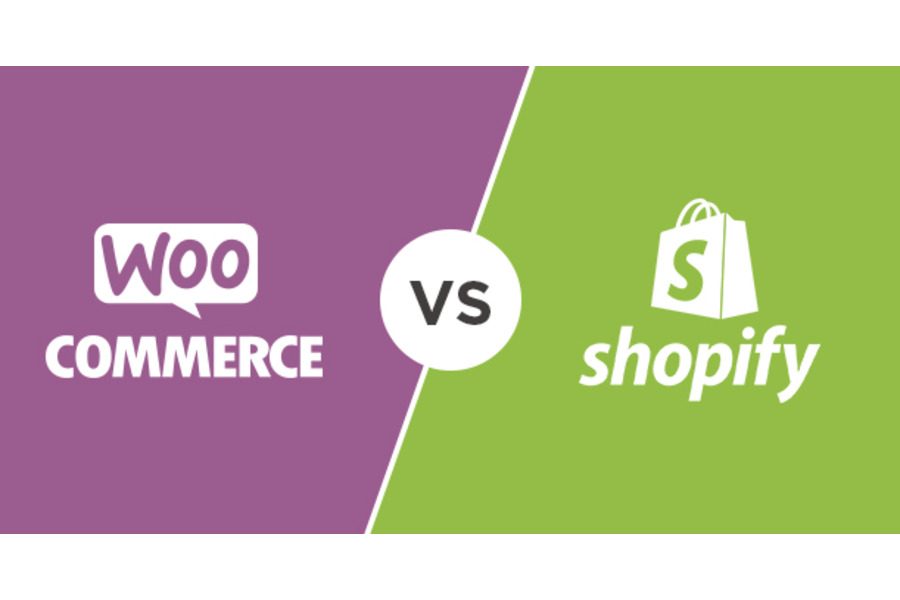The most popular e-Commerce platforms available today are WooCommerce and Shopify. If you are looking for a website builder, you have probably noticed that there are two big players in this space: Woo-Commerce and Shopify. These two tools have been mentioned in the same sentence over and over again during the last few years.
There is a reason why Shopify and Woo-Commerce are frequently mentioned in lists of the finest e-commerce platforms. They both utilize a user-friendly interface to help create and run an online business.
Additionally, several E-commerce website development companies assist people in maintaining their e-commerce websites.
Since both offer powerful SEO capabilities that outperform almost every other competitor, Shopify vs. Woo-Commerce SEO is also an excellent match.
Along with fundamental functions, Shopify offers a variety of apps to enhance your SEO performance as an all-in-one solution. Woo-Commerce, meanwhile, builds on WordPress’s robust blogging features to significantly improve your website’s online presence. Also, if you are new to e-Commerce, you can take Shopify Website development services to build tour websites easily.
Let’s compare Woo-Commerce vs. Shopify in this article so you can choose which is better for your online store.
Woo-Commerce vs. Shopify
Speed and uptime
You are all aware that a speedier website and higher uptime are two variables that significantly affect the performance of the site. Search engines are fast to take notice of a page that loads rapidly, and this can greatly improve user experience. About this aspect, Shopify wins thanks to its quicker loading times, particularly for sophisticated Shopify sites hosted on dedicated servers.
However, WooCommerce websites also provide a range of fixes for speed and uptime issues. To improve speed and uptime, one might, for example, alter the web host provider or the URL of the login page. Even the simplest solution, like buying a quicker theme, can be very beneficial.
SSL certificate authentication
Both Shopify and WooCommerce provide SSL certificate authentication, albeit in very different ways.
Once its custom domain has been properly added, the excellent Shopify is capable of giving SSL certificates to stores. The best is yet to come, though. In Shopify, SSL certificates are enabled for both your store’s checkout and any content hosted on your domain.
It takes a little work to set up SSL certificates in WooCommerce. You do, however, have many possibilities to complete the jobs. It’s common practice to contact SSL certificate suppliers for self-hosted websites and pay them a reasonable charge.
However, WooCommerce also offers free choices that are affordable. WooCommerce advises consumers to obtain free SSL certificates from Let’s Encrypt, a reputable certificate authority. However, WooCommerce also offers free choices that are affordable. WooCommerce advises consumers to obtain free SSL certificates from Let’s Encrypt, a reputable certificate authority.
A website blog
In Shopify, creating a blog page is much easier because all of the themes already have a blog page design. According to the demands of the website, it is modified and adjusted. Shopify gives you the option to integrate apps from the Shopify Apps Store to the blog page.
However, because WooCommerce incorporates WordPress functionality, adding blogs is considerably easier. You may quickly add and edit blogs by using dashboards. There are appealing blogging themes to support WooCommerce blog pages.
Cost
When adding SEO applications to your Shopify website, you will still have to pay, but the cost is fair considering that these are top-rated apps. An app that is available on the Shopify app store typically has a $20 monthly fee. The sum is not a terrific deal for beginners. It’s intriguing to learn that some of the applications offer free plans, though!
Since Woo-Commerce plugin prices are variable, it is significantly less expensive to pay for than Shopify. It ranges from individual to agency purchases, providing both monthly and annual payment options. For example, the average yearly charge for the premium version of Yoast is $89. Also, the availability of free versions is far better than Shopify’s.
Conclusion
Every firm has a set of particular needs that must be satisfied. And if you want to enter the world of e-commerce smoothly, you need to pick the platform that best meets your requirements.
If you want an all-in-one e-commerce platform that can get things up and running quickly while providing a ton of simple-to-use features and apps, Shopify is the right choice for your company. A fantastic support team is also there to help you with any issues, and there are several integration possibilities.
If you already have a WordPress website or are going to do so, WooCommerce is for you if you want to have greater control over your online store or have the time to do so.

